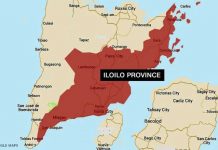
ILOILO City – The Department of Education (DepEd) 6 is pushing for a “whole of region approach” to address literacy and numeracy challenges among learners in Western Visayas.
This strategy involves close collaboration between DepEd, local government units (LGUs), private sector partners, and other stakeholders, said DepEd Region 6 director Dr. Ramir Uytico.
He acknowledged that improving literacy and numeracy in the region is a challenge, and cited the efforts of local officials, including Iloilo City’s Mayor Jerry Treñas and Gov. Arthur Defensor Jr. of Iloilo Province for their continuous support to the Schools Division Offices (SDOs) of Iloilo city and province.
“There is no end to our efforts to combat illiteracy and innumeracy. Every division and school has data, and we are using a regional approach to determine the best way to address this issue,” Uytico said.
Although no specific data or figures on the current number of learners struggling with reading and mathematics were provided, Dr. Elena Gonzaga, chief education supervisor of DepEd-6’s Curriculum and Learning Management Division, admitted that bridging the literacy and numeracy gap remains a challenge, particularly following the disruptions caused by the COVID-19 pandemic.
“All 21 SDOs and their school superintendents, along with schools across the region, are empowered to identify learners who are classified as non-literate or non-numerate,” Gonzaga said.
To identify struggling learners, DepEd-6 conducts annual assessments, including the Revised Philippine Informal Reading Inventory (Phil-IRI) and the Comprehensive Rapid Literacy Assessment (CRLA), which help determine literacy and numeracy levels.
Additionally, the Regional Achievement Measure (RAM) is administered to Grades 1 to 12 students to assess their academic performance across various subjects.
While the results of the recent RAM assessments are still being processed, Uytico emphasized the importance of data in formulating strategies to close the learning gaps.
The data collected will serve as the basis for seeking assistance and interventions from LGUs, he said.
DepEd-6 is also focused on empowering schools to create their own “Literacy and Numeracy Road Maps” as part of their improvement plans. Uytico stressed the need for every school to have a clear strategy to support non-readers and students struggling with basic mathematics.
In partnership with West Visayas State University (WVSU) and Iloilo Science and Technology University (ISATU), DepEd-6 aims to tailor interventions based on the findings of the RAM assessments.
One example of a successful initiative is at Manoling Elementary School in Capiz, where students are divided into groups based on their proficiency levels, with each group focusing on specific lessons. This approach has led to a zero non-reader rate at the school.
DepEd-6 also practices “LINE” (Literacy and Numeracy Excellence), a program that involves school superintendents and heads visiting classrooms to immediately recognize outstanding teachers and learners with medals and certificates.
In Guimaras, Schools Division Superintendent Dr. Novelyn G. Vilches highlighted the collaboration between DepEd and the provincial government, under the leadership of Gov. JC Rahman Nava, in addressing the literacy and numeracy gaps.
DepEd-Guimaras has launched Project LEARN (Literacy Enhancement and Re-enforcing Numeracy) with funding from the provincial government and USAID, allocating P2.5 million for instructional materials. LGUs are also conducting teacher training to ensure the effective use of these materials.
“This collaboration between DepEd, the provincial government, and the LGUs is critical in our fight against illiteracy and innumeracy among our children,” Vilches said./PN





